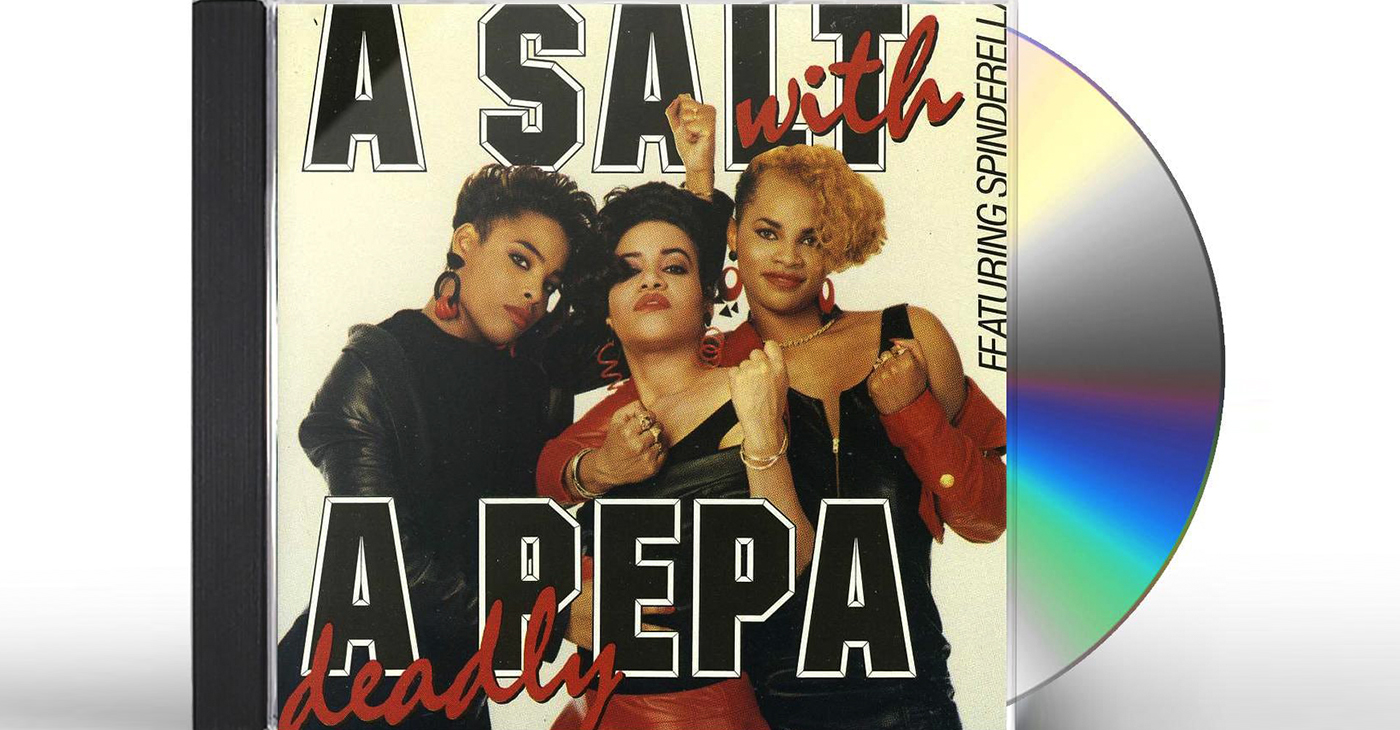[ad_1]
By The Birmingham Times
Quite naturally, when discussing the pioneering women of hip-hop, the names of DJ Spinderella (Deidre Roper) of Salt-N-Pepa and MC Lyte (Lana Michelle Moorer) come to mind, as they did when The Birmingham Times interviewed some of the Magic City’s female DJs.
Women have always been integral to hip-hop, dating to its founding. Cindy Campbell, the sister of Clive Campbell—better known as hip-hop originator DJ Kool Herc—is considered the First Lady and Mother of Hip-Hop, after she organized a party in 1973 with her brother as the DJ. No one knew then that hip-hop would grow from a set of turntables in the recreation room at 1520 Sedgwick Ave. in the Bronx into a multibillion-dollar business.
And there is the late Sylvia Robinson, founder of the renowned hip-hop record label Sugar Hill Records; she passed away in 2011. This visionary had the foresight to sign a trio of young men from Englewood, New Jersey: Michael “Wonder Mike” Wright, the late Henry “Big Bank Hank” Jackson (he passed away in 2014), and Guy “Master Gee” O’Brien, known collectively as the Sugar Hill Gang. Robinson was the driving force behind the first landmark singles in hip-hop: “Rapper’s Delight” by the Sugar Hill Gang (1979) and “The Message” by Grandmaster Flash and The Furious Five (1982).
Campbell and Robinson played a key role in the birth of hip-hop. Since then, women have helped nurture hip-hop culture and move it forward with deft lyrics, unique fashion statements, and overall brilliance. Here are 10 pioneering women of hip-hop.
Queen Latifah
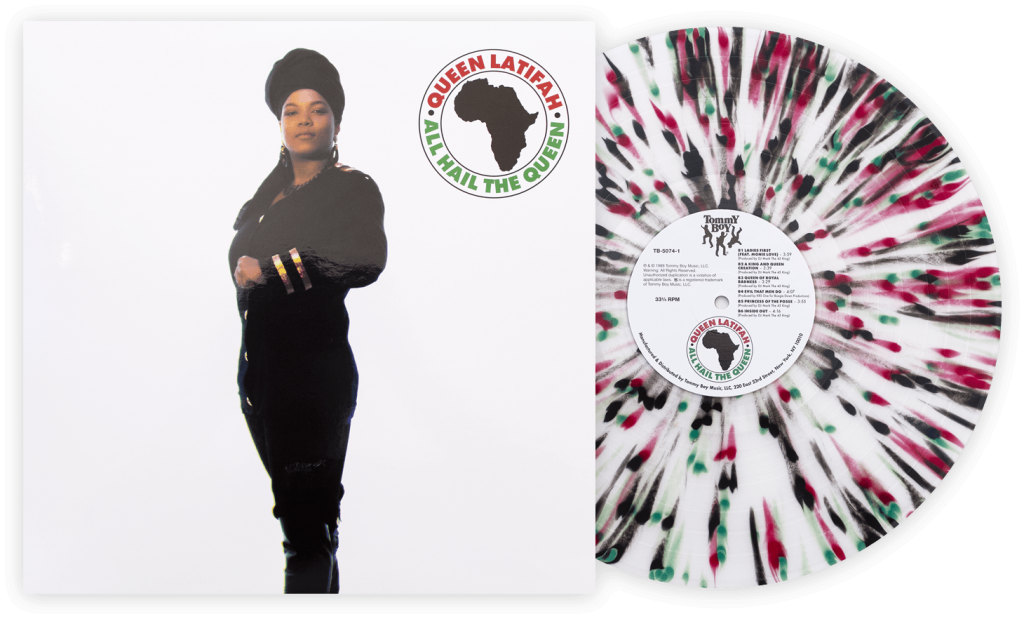
One of the most successful, if not the most successful, female artists in hip-hop is Queen Latifah, born Dana Elaine Owens in Newark, N.J. As a rapper, she has won a Grammy Award. As an actor, she has received Golden Globe and Academy Award nominations and won an Emmy Award. She also has been a talk show host and a product spokesperson and has worked on two documentaries for the Lifetime cable network. Queen Latifah is an original member of the Flavor Unit, a group of New York and New Jersey MCs and DJs. Along with fellow original Flavor Unit member Shakim Compere, Queen Latifah established Flavor Unit Entertainment, a film-and-management company that has produced more than 15 films and influenced the early careers of dozens of rap artists. She also was a member of the Native Tongues hip-hop collective, which included groups like De La Soul, A Tribe Called Quest, and fellow female MC Monie Love; one of the group’s hits was “Buddy,” which featured verses from Queen Latifah and Monie Love. Queen La’s debut album “All Hail the Queen” (1989) included the hit single “Ladies First” (also with partner-in-rhyme Monie Love). Her third album “Black Reign” (1993) featured the Grammy-winning “U.N.I.T.Y.,” an anthem that spoke out against the disrespect of women in hip-hop culture. In 2006, Queen Latifah was the first hip-hop artist to receive a star on the Hollywood Walk of Fame, and in October 2019 she received the W.E.B. Dubois Medal for her contributions to black history and culture during a ceremony at Harvard University. Still serving as the CEO of Flavor Unit Entertainment, Queen Latifah proves the sky is the limit not only for women in hip-hop but also for women of color.
Salt-N-Pepa
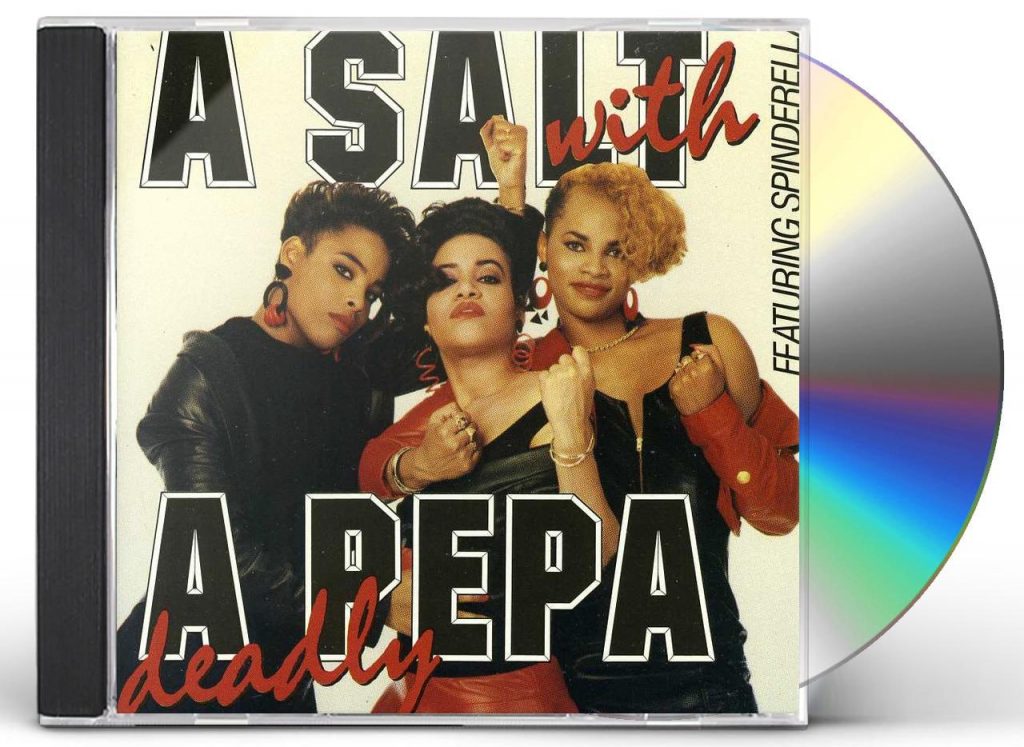
The trio of Cheryl “Salt” James, Sandy “Pepa” Denton, and Deidra “DJ Spinderella” Roper released their first album “Hot, Cool, and Vicious” in December 1986 and, propelled by the Grammy Award–nominated hit “Push It,” became the first female rap act to earn a platinum status LP. The group set trends with their hairstyles, wardrobe, and dance-driven music videos. The ladies of Salt-N-Pepa also were recognized for developing their own brand of hip-hop feminism, with lyrics that embraced female sexuality on songs like “Let’s Talk about Sex,” “Whatta Man,” and “Shoop.” The group has sold more than 15 million records worldwide, making them one of the best-selling rap acts of all time, male or female. And in 1995, they won the Grammy Award for Best Rap Performance by a Duo or Group for their song “None of Your Business.” Salt-N-Pepa remained together until earlier this year, when Roper announced she had been “terminated” from the group.
Roxanne Shanté
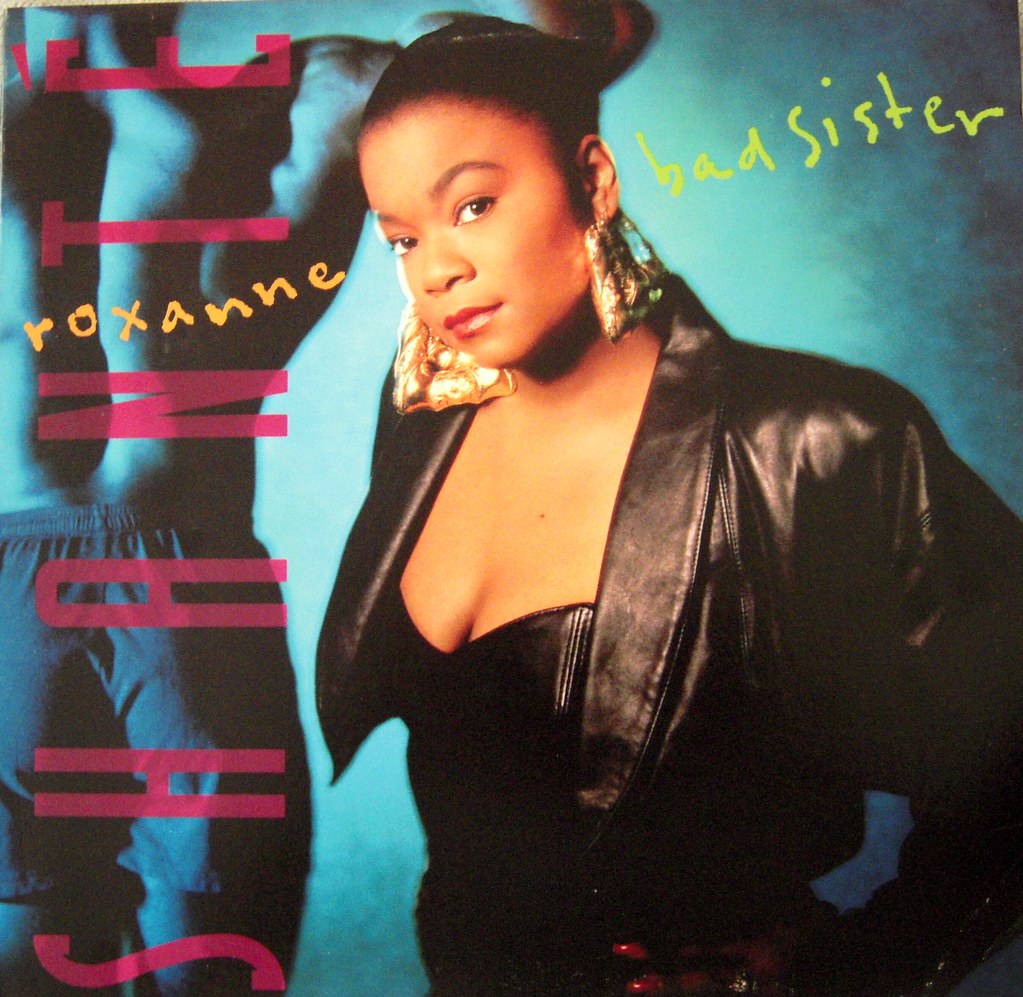
“I gave birth to most of them MCs, … so when it comes around to the month of May, send me your royalty check for Mother’s Day.”—Roxanne Shanté, “Have a Nice Day”
Lolita Shanté Gooden was an unknown 14-year-old who approached hip-hop producer Marlon “Marley Marl” Williams with the idea of a rap response to the UFTO hit “Roxanne, Roxanne.” Her 1994 single “Roxanne’s Revenge” triggered the Roxanne Wars, one of the most well-known series of hip-hop rivalries during the 1980s—maybe ever; it spawned anywhere from 30 to more than 100 answer records citing Roxanne’s family or making various claims about the rapper. And probably a first in rap, the Roxanne Wars created a dispute between two personas who were created as a result of a song: Roxanne Shanté and The Real Roxanne. Gooden, the original Roxanne, was born and raised in the Queensbridge Projects in New York’s Long Island City neighborhood, and was part of the Juice Crew, a group of artists founded by Marley Marl and legendary New York City DJ John “Mr. Magic” Rivas, who passed away in 2009. Not only was Shanté’s song the first recorded “battle response” in hip-hop, but she became one of hip-hop’s first female battle rappers. She started out vocally sparring with UTFO and moved next to fellow female MC Doreen “Sparky D” Broadnax, a clash that led to several freestyle face-offs between the two female rappers. “Roxanne, Roxanne,” a dramatized biopic about Roxanne Shanté’s life that was first shown at the 2017 Sundance Film Festival, received critical acclaim. The film was co-produced by actor Forest Whitaker and music producer Pharrell Williams, and its lead actress, Chanté Adams, won a special jury prize for breakthrough dramatic performance at Sundance for her portrayal of Roxanne Shanté.
MC Lyte

Born Lana Michelle Moorer, MC Lyte ushered in a whole new way of how women were viewed in hip-hop. Her 1988 release of “Lyte As A Rock” marked the beginning of the solo female MC. She broke barriers in the music industry not only for being the first solo female MC to sell millions of singles and albums but also for her songs that helped transition hip-hop from the feel-good, party vibe of the late 1970s into a socially conscious form of expression. She addressed issues like racism, sexism, and the drug culture that consumed her community, and she was the first rap artist to perform at Carnegie Hall. The 1993 single “Roughneck” earned the legendary lyricist a Grammy Award nomination for Best Rap Single. MC Lyte would later serve as the first African American woman president of the Los Angeles chapter of the Recording Academy (the Grammy organization) from 2011 to 2013. She still performs, writes music, runs a scholarship foundation, mentors, and acts. She also is a much-sought-after DJ who has provided music for the NAACP Image Awards, Essence, Black Enterprise, and several other groups. MC Lyte’s journal is part of the “Hip-Hop Won’t Stop: The Beat, The Rhymes, The Life” collecting initiative by the Smithsonian’s National Museum of American History.
MC Sha Rock
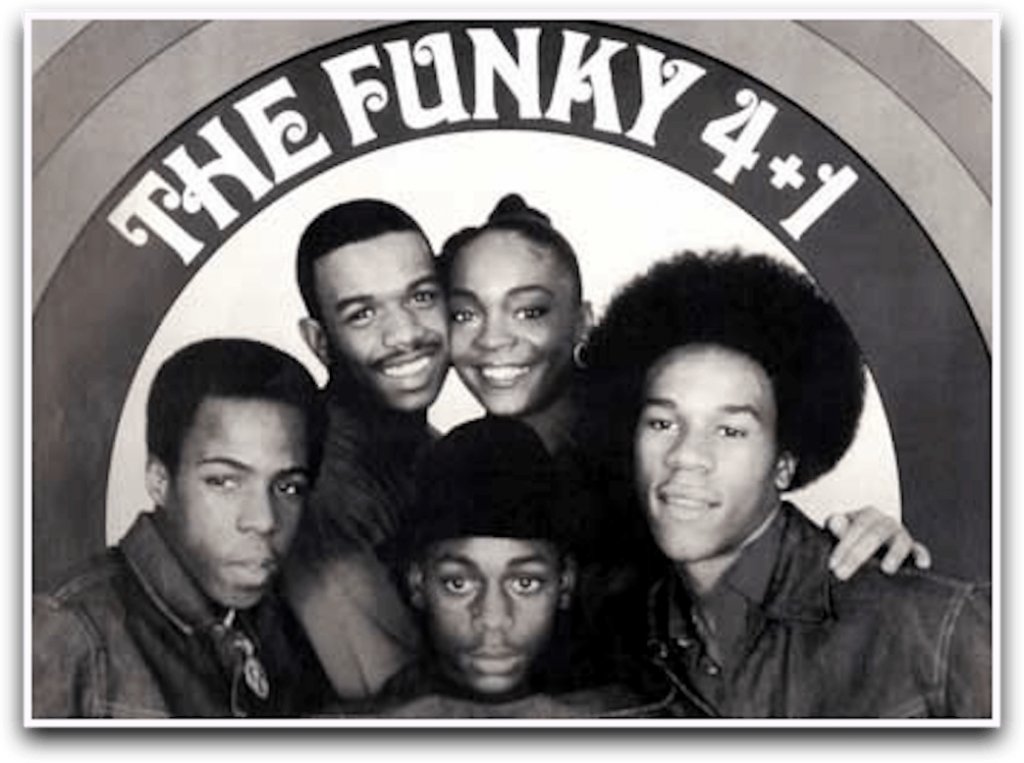
When the Funky Four Plus One hit the music scene many may not have paid attention to the “Plus One”—Sharon “MC Sha Rock” Green, also referred to as the “Mother of the Mic” and the “Luminary Icon.” As an early pioneer affiliated with the Universal Zulu Nation, an international hip-hop-awareness group, Sha Rock inspired use of the “echo chamber,” a style of rapping emulated and made notable by later groups, including 2009 Rock and Roll Hall of Fame inductees Run-DMC. The Funky Four Plus One had their first significant hits with the singles “Rapping and Rocking the House” (1979) and “That’s the Joint” (1980), both on Sugar Hill Records. The group made rap and hip-hop television history by being the first music artists to appear on national broadcast television. In 1981, progressive rock group Blondie, the featured performer on an episode of Saturday Night Live, chose the Funky Four—plus 19-year-old Sha Rock—as their special musical guests for the last live music slot of the show. When the group disbanded, Sha Rock went on to form an all-female rap group, Us Girls, which was featured in “Beat Street,” the 1984 groundbreaking film about New York City hip-hop culture.
Sister Souljah
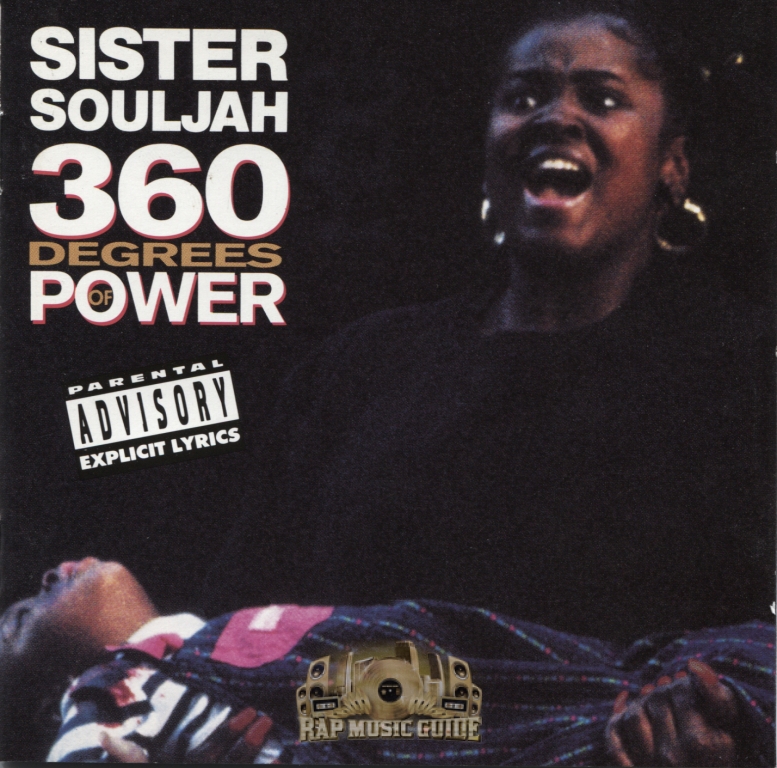
Not many rap artists have had books appear on The New Times Best Sellers list, but Lisa Williamson—better known as Sister Souljah—has done it three times. Sister Souljah used her platform as a hip-hop artist to spark critical debates about race in America and encouraged often-silenced black women to speak up, not only through music but also as activists in communities around the world. During her teenage years, she received several honors, including the American Legion’s Constitutional Oratory Contest, for which she received a scholarship to attend Cornell University’s Advanced Summer Program. She graduated from Rutgers University with a dual degree in American History and African Studies. During her senior year at Rutgers, she developed and financed the African Youth Survival Camp for children of homeless families, a six-week summer sleepaway camp in Enfield, N.C. Sister Souljah appeared as a featured guest on several tracks with revolutionary hip-hop artists Public Enemy and eventually became a full member of the group, which was inducted into the Rock and Roll Hall of Fame in 2013. In 1992, she released her only album, “360 Degrees of Power,” but she will forever be remembered for her statements about the Los Angeles riots that took place the same year. In an interview, she was quoted in The Washington Post as saying, “If black people kill black people every day, why not have a week and kill white people?” The quotation was later reproduced in the media, and she was widely criticized. Then presidential candidate Bill Clinton publicly criticized that statement and the Rev. Jesse Jackson for allowing the rapper to be part of his Rainbow Coalition—thus the “Sister Souljah Moment” was created.
Oaktown’s 357
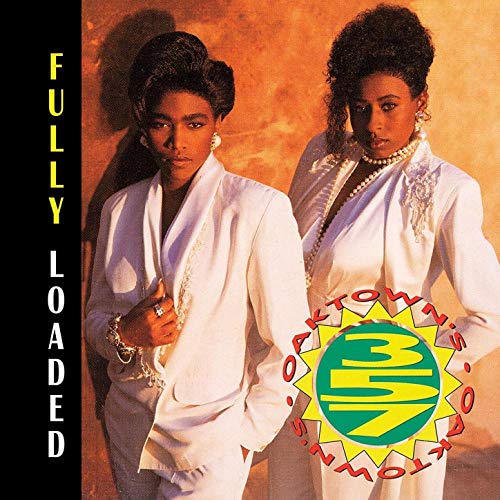
Suhayla “Sweet L.D.” Sabir, Phyllis “Lil P” Charles, and Tabatha Zee “Terrible T” King-Brooks began as background dancers for Stanley “MC Hammer” Burrell and in the late 1980s released their own Billboard Top 10 hit singles: “Juicy Gotcha Krazy” and “Yeah, Yeah, Yeah.” “Oaktown” is a nickname for Oakland, Calif., and “357” referred to a .357 Magnum revolver to represent the power of their dance moves. The group struggled through member changes, and when Hammer’s popularity slid, so did the group. The ladies released two more albums—“Fully Loaded” (1991) and “Fila Treatment” (1992)—but by that time, most listeners had moved on. Still, that doesn’t take away from their role in the growth of female representation in hip-hop, especially at a time when the genre was male-dominated.
J. Fad
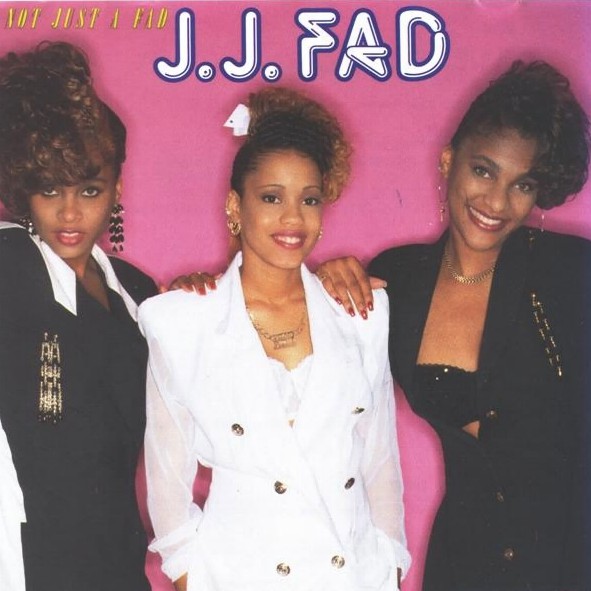
Without J. J. Fad’s 1998 platinum-selling debut album “Supersonic,” Ruthless Records wouldn’t have had the cash to drop N.W.A.’s seminal “Straight Outta Compton,” which was released later that same year, according to members of the group and superproducer Andre “Dr. Dre” Young in the Grammy Award–winning Best Music Film “The Defiant Ones.” J. J. Fad featured a rotating cast of Juana “MC JB” Burns, Juanita “Crazy J” Lee, Fatima “OG Rocker” Shaheed, Anna “Lady Anna” Cash, and Dania “Baby D” Birks; the group’s name is an acronym formed from the first letter each member’s first name. These ladies don’t get enough credit for their role in hip-hop history.
The Sequence

Another pioneering group signed to Sugar Hill Records in the late 1970s was The Sequence, which in 1979 released “Funk You Up,” the first rap single by a female group. The group’s members—Cheryl “Cheryl the Pearl” Cook, Gwendolyn “Blondie” Chisolm, and Angie “Angie B” Brown Stone—met in high school as cheerleaders in Columbia, S.C. The Sequence also was America’s first Southern rap group and one of the first to seamlessly blend singing and rapping. Cheryl the Pearl also claims they were the first to utter “gangsta rap” (a style of hip-hop that emphasizes a violent lifestyle) lyrics in their song “And You Know That” (1980), which includes the line, “We’re not Con Funk Shun/We’re not the Gap/We’re the Sugar Hill girls with the gangsta rap.” And if the name Angie Stone rings a bell, it should: She went on to become a producer, actress, and neo-soul music icon with four top-10 albums.
Lauryn Hill
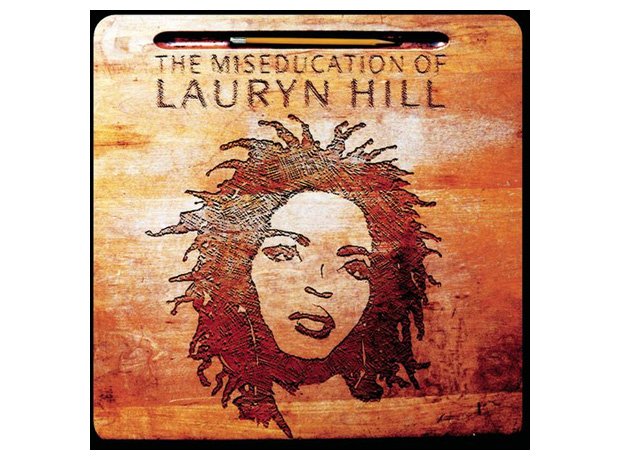
Many of the pioneers on the list date back to the 1970s and 1980s, but Lauryn Hill’s “Miseducation of Lauryn Hill” (1998)—one of the top-selling hip-hop and rap albums of all time—must be acknowledged. Often described as a “masterpiece” by music experts, Hill’s only solo studio album has received critical acclaim as a representation of life and serves as a standard within the neo-soul genre. According to Billboard magazine, the album “turned her into an icon, showcased her visionary talents as the sole writer-producer on almost every track, and taught a generation about the power of baring your soul through song.” “Miseducation” debuted at number one on the U.S. Billboard 200 chart and has sold approximately eight million copies and counting. At the 41st Grammy Awards, the album earned her five awards, including Album of the Year and Best New Artist. Hill, raised mostly in South Orange, N.J., began singing with her music-oriented family. She was approached in high school by Prakazrel “Pras” Michel for a band he started, which his friend, Wyclef Jean, soon joined; the trio named themselves the Fugees and released the album “Blunted on Reality” (1994). But it was “The Score” (1996)—which won a Grammy for Best Rap Album and sold six million copies in the U.S.—that catapulted Hill to prominence via her African American and Caribbean music influences, rapping and singing skills, and rendition of the Roberta Flack hit “Killing Me Softly.” The Fugees split in 1997 and paved way for Hill’s groundbreaking, career-defining album.
This article originally appeared in The Birmingham Times.
[ad_2]
Source link

